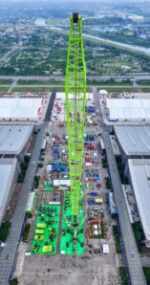ASEAN-GCC-China collaboration signals growing demand for multilateralism
The United States (U.S.) persistent efforts to maintain its fading unipolar dominance – through tariffs, sanctions, military presence, and dollar hegemony – have sparked a global pushback, prompting nations to seek refuge in multilateral alliances. –Dr Julia Roknifard Among the most notable is the BRICS organisation, which has grown in prominence. However, this is just one of many such organisations, all of which share the common theme of nations outside the traditional Western sphere banding together to insulate themselves from Washington’s overreach. This shift is driven not by ideology but by necessity. One recent example of this trend is the imposition of tariffs on the photovoltaic sector of several Association of Southeast Asian Nations (ASEAN) members. These new duties follow previous tariffs placed late last year, under the pretext that ASEAN is merely a transshipment hub for Chinese-manufactured goods. These measures have fuelled dissatisfaction among ASEAN members, especially given the historical trade dynamics in the region. Originally formed during the Cold War to address tensions between non-communist Southeast Asian nations, ASEAN has since evolved into a diverse bloc. It now includes republican democracies, constitutional monarchies, and socialist states, all united in the pursuit of regional integration and socio-economic development. The timing of Malaysia’s chairmanship of ASEAN in 2025 is fortuitous. Under Prime Minister Anwar Ibrahim, Malaysia is pushing for a neutral, trade-focused course, seeking economic cooperation with multiple nations while avoiding confrontation. Though there are exceptions, the overarching policy remains intact. Similarly, the Gulf Cooperation Council (GCC), established in 1981 amid geopolitical tensions in the Middle East, has evolved from a regional security pact into a significant player in global energy markets. With vast reserves of hydrocarbons, the GCC now seeks greater economic diversification and long-term fiscal sustainability in light of the rise of new energy industries. During the early […]










